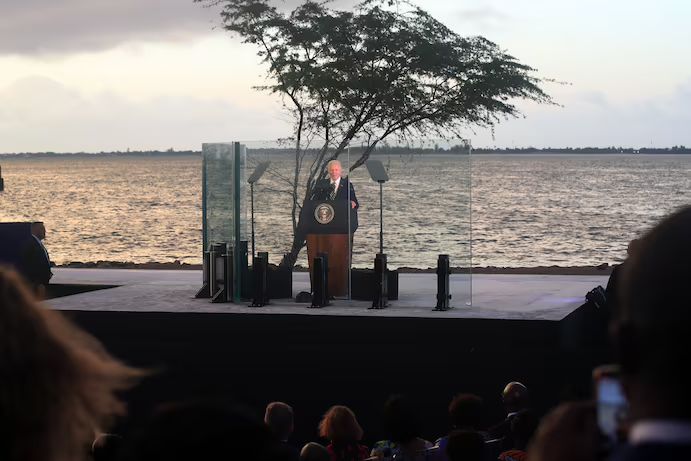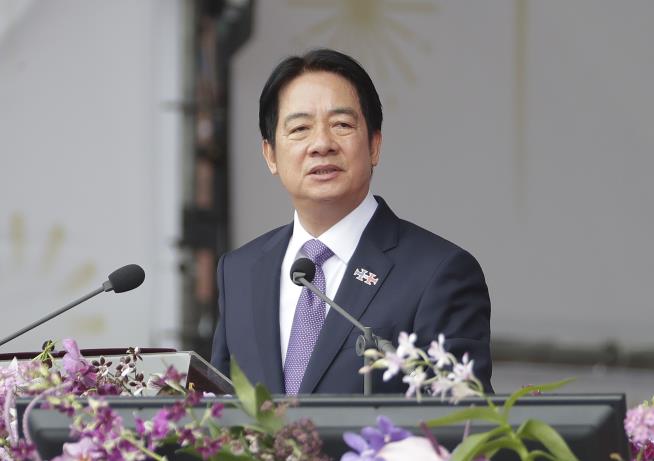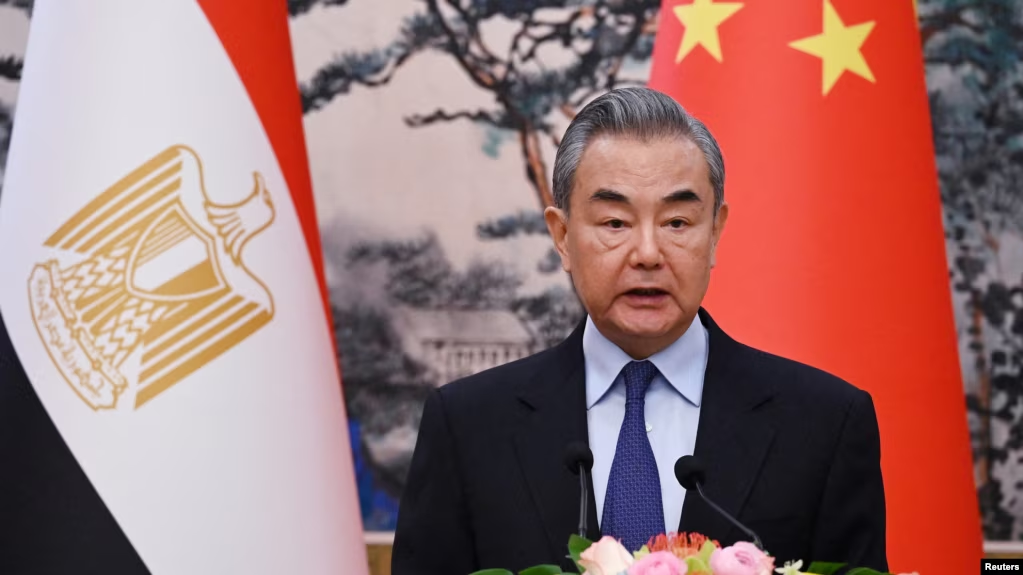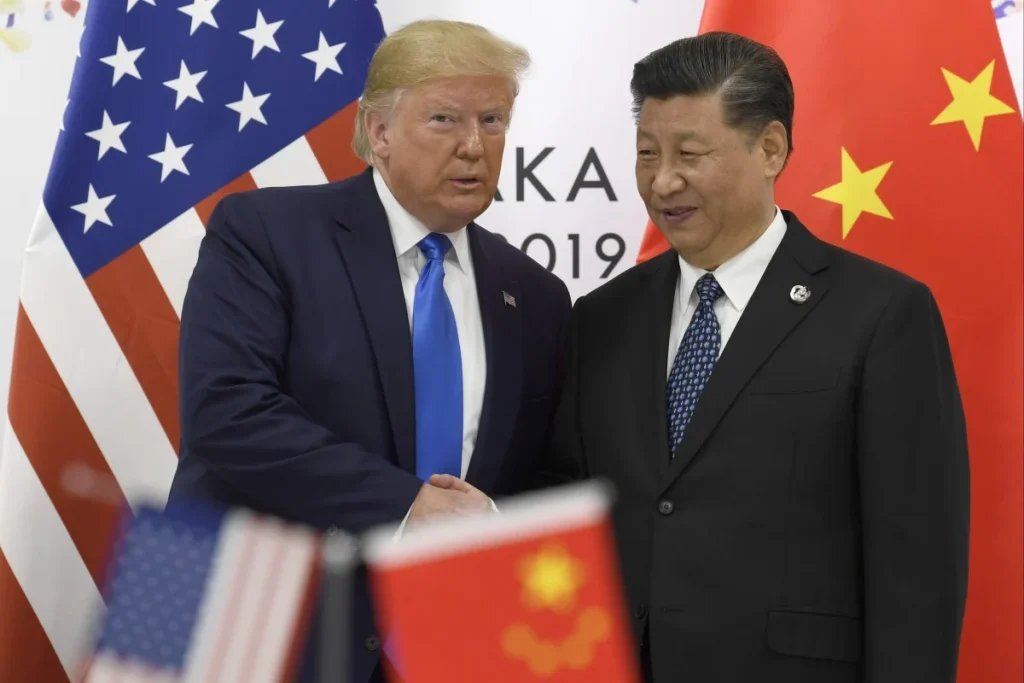Biden, in Africa, decries history of slavery and urges partnership

President Joe Biden’s recent trip to Africa has made headlines for both its diplomatic significance and his poignant remarks on the history of slavery. The visit marks an important moment in the broader context of U.S.-Africa relations, as Biden sought to both acknowledge past injustices and advocate for a future rooted in cooperation, economic growth, and shared prosperity. During his visit, he made a powerful statement decrying the dark legacy of slavery while emphasizing the importance of forming partnerships with African nations moving forward.
The Context of Biden’s Visit to Africa
Biden’s trip to Africa, which included visits to key countries like Ghana, Tanzania, and Zambia, was framed as part of the United States’ broader strategy to strengthen ties with African nations. This trip came at a time of growing competition between global powers, particularly the U.S. and China, who are both vying for influence on the African continent. Biden’s visit to Africa was also seen as an opportunity to highlight U.S. support for the African Union’s efforts in peace, security, and economic development, as well as a way to deepen trade and investment relationships with African nations.
For Biden, the trip was not only a political and economic endeavor but also an acknowledgment of the painful history that ties the U.S. and Africa together. The legacy of slavery, colonialism, and the exploitation of African nations was central to his message, which resonated strongly with leaders and citizens across the continent.
Acknowledging the Legacy of Slavery
One of the most powerful moments of Biden’s trip was his acknowledgment of the enduring legacy of slavery and the atrocities committed during this dark chapter of history. In a series of speeches and public engagements, Biden expressed sorrow for the pain caused by the transatlantic slave trade and its lasting impact on generations of Africans and African Americans.
Biden reflected on how millions of Africans were forcibly taken from their homeland, enduring brutal conditions and being subjected to unimaginable cruelty. He recognized the profound effect that this history continues to have on the African diaspora, particularly in the United States, where Black communities continue to grapple with systemic inequality, racism, and social injustice.
In his speeches, Biden did not only stop at acknowledging the wrongs of the past, but also highlighted the ongoing struggles that African and African American communities face due to the long-lasting effects of slavery. These issues include access to education, healthcare, economic opportunity, and racial discrimination that persist in many parts of the world.
His words were seen as an important step in improving the diplomatic relationship between the U.S. and Africa, showing a deep understanding of the pain caused by the historical injustices that have shaped both continents.
Urging Partnership and Shared Prosperity
While acknowledging the painful history, Biden’s visit was equally about charting a path forward for the future. He called for a new chapter in the relationship between Africa and the United States, one that focuses on shared prosperity, democratic values, and regional security.
Biden urged African nations to engage with the U.S. as equal partners, with a focus on boosting trade, investment, and development in sectors like clean energy, infrastructure, healthcare, and technology. He announced new initiatives aimed at creating economic opportunities, particularly for young people across Africa, who make up a growing portion of the continent’s population. These initiatives include funding for infrastructure projects, educational exchanges, and support for entrepreneurship, especially for women and youth.
The U.S. also pledged support for Africa’s fight against climate change, with Biden reaffirming America’s commitment to assisting the continent in its transition to renewable energy. Africa is among the regions most vulnerable to the effects of climate change, and Biden’s message underscored the need for developed nations to step up and provide assistance to ensure a sustainable future for all.
Furthermore, Biden reiterated his support for democratic governance across Africa, stressing the importance of upholding the rule of law, promoting human rights, and combating corruption. He commended African nations for their progress in areas such as health, education, and democracy but urged further efforts to ensure that these advancements are shared more equitably.
The Significance of the Visit
Biden’s trip to Africa is not only important from a diplomatic standpoint but also as part of a broader U.S. strategy to reassert its influence in Africa, particularly as China’s footprint on the continent continues to grow. In recent years, China has made substantial investments in African infrastructure and trade, challenging the U.S. to compete for economic and geopolitical influence.
By visiting multiple African countries and engaging in conversations about shared development, Biden is signaling that the U.S. is committed to building long-term, mutually beneficial relationships with African nations. The trip underscores the administration’s belief in Africa as an emerging center of global growth, with vast potential for business, innovation, and human development.
Biden’s remarks about slavery and the historical connections between the U.S. and Africa also serve to build goodwill. By acknowledging the pain and suffering of the past, he sought to build trust and foster deeper relationships with African leaders and citizens who have historically seen the U.S. as a distant or sometimes unsympathetic partner.
Response from African Leaders
Biden’s message was met with praise from many African leaders, who appreciated the U.S. president’s acknowledgment of the continent’s historical struggles and his call for a more equitable and inclusive future. African leaders have long sought a more equal partnership with Western powers, one that goes beyond aid and addresses issues like trade, investment, and debt relief.
For example, Ghana’s President Nana Akufo-Addo praised Biden’s visit, calling it a sign of the U.S.’s genuine interest in strengthening its relationship with Africa. Similarly, Tanzanian President Samia Suluhu Hassan highlighted the importance of fostering stronger economic ties between the U.S. and Africa, noting that the continent is eager to collaborate on issues like health, climate change, and economic development.
While the trip was generally well received, it also highlighted the ongoing challenges that many African nations face in their efforts to achieve sustainable development. Issues such as poverty, political instability, and the COVID-19 pandemic remain significant obstacles, and many African leaders are looking for more substantive partnerships with the U.S. and other global powers.
Biden’s visit to Africa represents an important moment in the ongoing evolution of U.S.-Africa relations. His remarks on slavery, while deeply reflective of the painful history between the U.S. and Africa, also provided an opportunity to forge new connections and pathways toward partnership. By urging African nations to work with the U.S. as equals, Biden sought to establish a more forward-thinking relationship based on mutual respect, shared goals, and a vision for prosperity.
As the world shifts toward greater geopolitical competition, particularly with China’s growing influence in Africa, Biden’s trip signals the importance of the African continent in shaping global economic and political trends. Africa’s young and rapidly growing population presents both opportunities and challenges, and the U.S. has an important role to play in supporting the continent’s development while also promoting democratic values and human rights.
Ultimately, Biden’s visit is a reminder that the relationship between the U.S. and Africa is one that must be nurtured with care and understanding, built on a foundation of acknowledgment, respect, and a shared vision for a better future.






